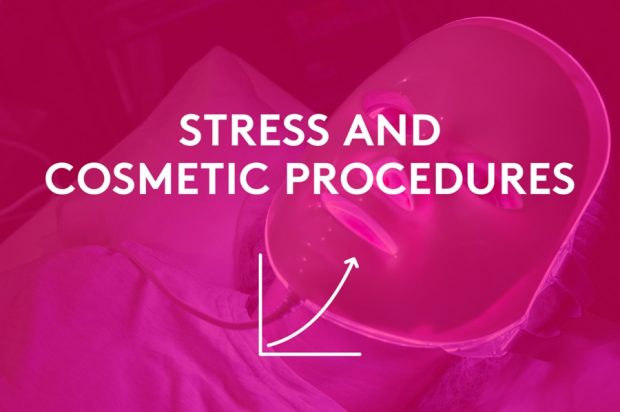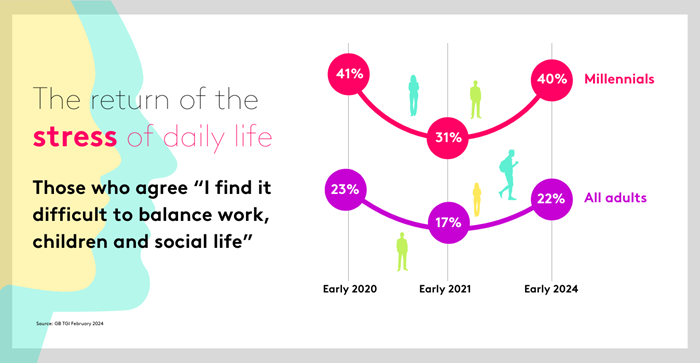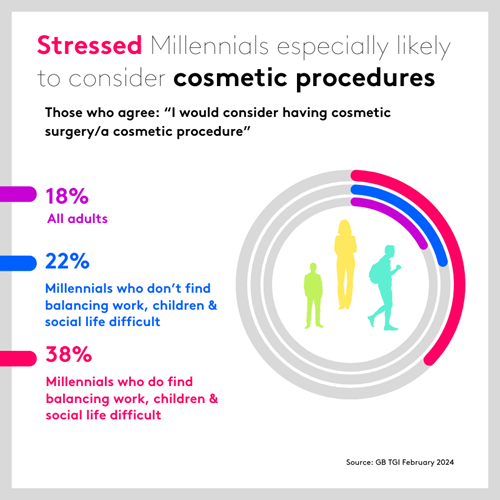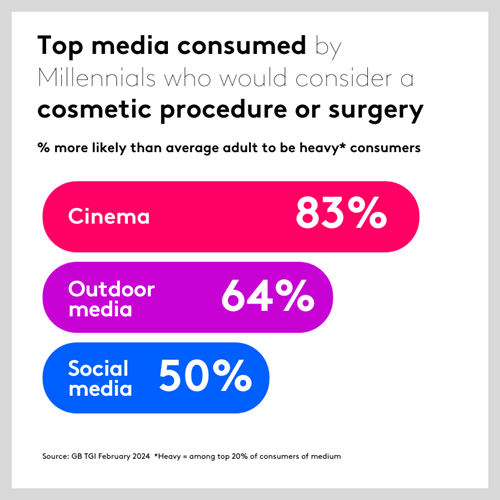Our TGI data reveals that stressed consumers in the UK are increasingly turning to cosmetic treatments

One behavioural byproduct of the social restrictions caused by the pandemic was that many people found their day-to-day lives unexpectedly less stressful. With lockdowns curtailing many aspects of social life and preventing millions from commuting to and from work, although these were horribly anxious times for many, what we weren’t doing as much of was rushing around.
GB TGI data shows us that the proportion of adults who say that they are finding it difficult to balance work, children and social life dropped considerably when the pandemic hit. But with restrictions long since lifted, the figure has crept back up to where it was. Certain groups are particularly impacted, with Millennials (those born between 1981 and 1996) almost twice as likely to be stressed out by daily life.

These stressed consumers are increasingly turning to cosmetic treatments, no doubt in part to help them feel better and less frazzled in their day-to-day lives.
Whilst only 18% of adults say they would consider having cosmetic surgery or a cosmetic procedure, this more than doubles among Millennials who find balancing work, children and social life difficult – representing 2.1 million people – and is considerably higher than the figure for Millennials who do not find these things difficult.

Many of these stressed Millennials are acting on such views, with 23% of them claiming to have had a cosmetic procedure (e.g. Botox) or therapy/treatment (e.g. massage/wax) in the last 12 months – compared to 11% of adults as a whole.
Millennials who are considering cosmetic procedures are considerably more likely than the average adult to be heavy consumers of a range of media, offering a variety of potentially efficient means of reaching this target.
